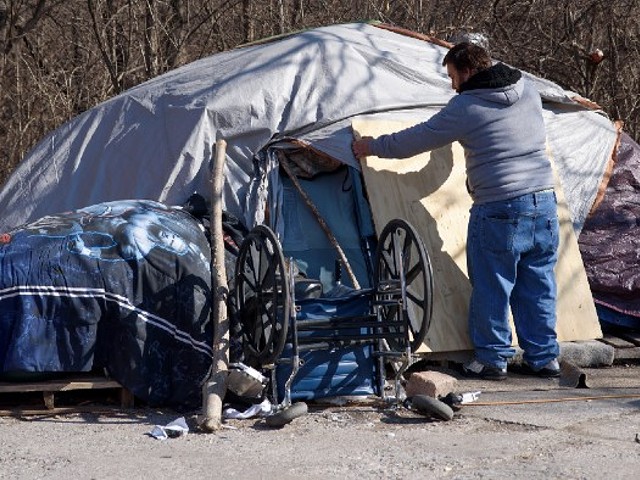Approvals and denials
A majority of the approvals went to pharmaceutical and healthcare companies that were elevated to Tier 3 of Phase 1B. That meant upon William’s approval, their employees were immediately eligible for a vaccine instead of having to wait several weeks.
Many, like Confluence Discovery Technologies, Gold Biotechnology, Labconco Corp., Mallinckrodt Pharmaceuticals and Reliable BioPharmaceuticals, were involved in developing drugs for COVID-19 treatments and vaccines, manufacturing medical supplies or analyzing COVID test samples.
“The demand has nearly tripled pre-covid days,” wrote Labconco Corporation’s vice president of human resources, noting that a contract with a Department of Defense supplier required expedited production.
Some companies requested just a portion of employees be prioritized, like seven employees in eResearchTechnology Inc.’s St. Louis County office who must work in-person to process data for clinical trials.
Home State Health, a subsidiary of Centene Corporation that operates a managed health care plan through Missouri’s Medicaid program, requested the change for between 500 to 1,000 of its frontline staff — about 10 to 15 percent of its entire workforce — who could not work remotely processing paper health claims, managing call centers and more.
Despite questions about Centene’s role as mainly a claims processing unit as opposed to a pharmaceutical production company, Adam Crumbliss, the director of DHSS’ Division of Community and Public Health, said during a committee meeting that they were essential as “the key infrastructure for continuing the movement of the Medicaid managed care infrastructure.”
Another industry that was bumped up was libraries, after the committee recommended they be classified under Phase 2.
“Dr. Williams modified the health order following the first committee meeting,” said Lisa Cox, a spokeswoman for DHSS. “That decision was to avoid all other libraries in the state being forced to apply for consideration by the committee.”
Other approvals ranged from the St. Louis Convention and Visitors Commission, a political subdivision of the state that operates the America’s Center Convention Complex, to Applied Learning Processes, a center that works with students with severe learning disabilities in Kansas City, to the Olin Corporation, a manufacturing company that makes chemicals like chlorine used in municipal water treatment.
Meanwhile, some industries were less fortunate — with higher education institutions expressing frustration they were in a later tier than K-12 education.
Because staff is exposed in classrooms for prolonged periods, “there should be no difference in phases between K-12 and higher education,” wrote Darby Gough, the assistant vice president of student development and success at Avila University, a private Catholic university in Kansas City.
Similarly, the Kansas City Chapter, AGC of the The Builders’ Association, said it seemed counterintuitive that emergency orders at the start of the pandemic included construction as a critical sector, but that the industry received no mention in vaccine priority tiers.
“We were told to keep projects moving (which kept many people off the unemployment rolls), but now have been left out during the recovery phases,” wrote Allen Dillingham, the group’s director of government relations. “This is not right.”
Following the committee’s recommendation, Williams amended the state’s health order to explicitly add the construction industry to Phase 2.
'A daily challenge'
Many of the submissions highlighted the economic impact businesses had on their areas, and the roles they played in helping end the pandemic — like Drury Hotels housing healthcare workers and National Guard members.
And others stressed that despite following best practices, COVID outbreaks were hard to control.
St. Louis Public Schools had been teaching in-person since October, but “quarantines are crippling our ability to continue in the classroom,” wrote Jayme Major, the assistant general counsel for the district.
“Large numbers of quarantines have brought us to the brink of returning to all-virtual at some schools,” Major wrote, later adding: “In addition, teacher fear and exhaustion has led to call-ins, and teachers opting to take long-term unpaid leave or resign.”
Metro Transit, which serves the St. Louis region, was facing similar challenges.
“To date, 252 (Bi-State Development) employees have tested positive for COVID-19, and two employees have succumbed to this terrible illness,” wrote Jessica Mefford-Miller, Metro’s executive director. “The constant impact of this virus on our workforce makes continuing to provide this essential service a daily challenge.”
The owner of a locally-owned running store in St. Louis described how both he and his wife had health issues and were the main employees that kept the store afloat.
“We work the store. We interact on a daily basis with customers. If one of us gets covid it will really hurt our business as we can’t then operate under our normal hours. We are the only two, but we do (have) a person that helps us on Saturdays but who has other jobs,” the owner wrote, later adding: “I am 64 she turns 60 in March. Can we get moved up in the vaccine priority please?”
Their request was denied.
Under a Short-Lived Committee, Some Businesses Jumped Ahead in Missouri Vaccine Line
[
{
"name": "GPT - Leaderboard - Inline - Content",
"component": "41932919",
"insertPoint": "5th",
"startingPoint": "3",
"requiredCountToDisplay": "3",
"maxInsertions": 100
}
]
Page 2 of 2





